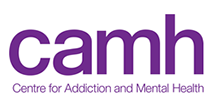This approach yielded one important difference with tangible implications for suicide prevention. People with schizophrenia had more contact with the health care system, as more than half sought help for a mental health problem in the 30 days before death, compared with only one quarter of the non-schizophrenia group.
“This finding points to an opportunity to intervene, and raises the question of whether there’s a role for a suicide risk assessment and management with every young person with schizophrenia,” says Dr. Zaheer.
Assessments may not be top of mind among clinicians, who are focused on managing their patients’ hallucinations and delusions, she notes. But because younger people with schizophrenia are engaged with the health care system, clinicians do need to be more vigilant about the risk of suicide in these patients.
Dr. Paul Kurdyak, senior author and scientist at CAMH and ICES, explains the potential impact of these findings in practice. “In Ontario, as in other provinces, we have regional early intervention programs to provide services for young people dealing with their first psychotic episode. These programs are the ideal sites to incorporate standardized suicide assessment and management to hopefully reduce the high rate of suicide among young people with their first psychotic episode.”
The Centre for Addiction and Mental Health (CAMH) is Canada’s largest mental health and addiction teaching hospital and a world leading research centre in this field. CAMH combines clinical care, research, education, policy development and health promotion to help transform the lives of people affected by mental illness and addiction. CAMH is fully affiliated with the University of Toronto, and is a Pan American Health Organization/World Health Organization Collaborating Centre. For more information, please follow @CAMHnews and @CAMHResearch on Twitter.
The Institute for Clinical Evaluative Sciences (ICES) is an independent, non-profit organization that uses population-based health information to produce knowledge on a broad range of health care issues. Our unbiased evidence provides measures of health system performance, a clearer understanding of the shifting health care needs of Ontarians, and a stimulus for discussion of practical solutions to optimize scarce resources. ICES knowledge is highly regarded in Canada and abroad, and is widely used by government, hospitals, planners, and practitioners to make decisions about care delivery and to develop policy. For the latest ICES news, follow us on Twitter: @ICESOntario
Media contact:
Sean O’Malley, Media Relations
Centre for Addiction and Mental Health
416-595-6015
media@camh.ca























